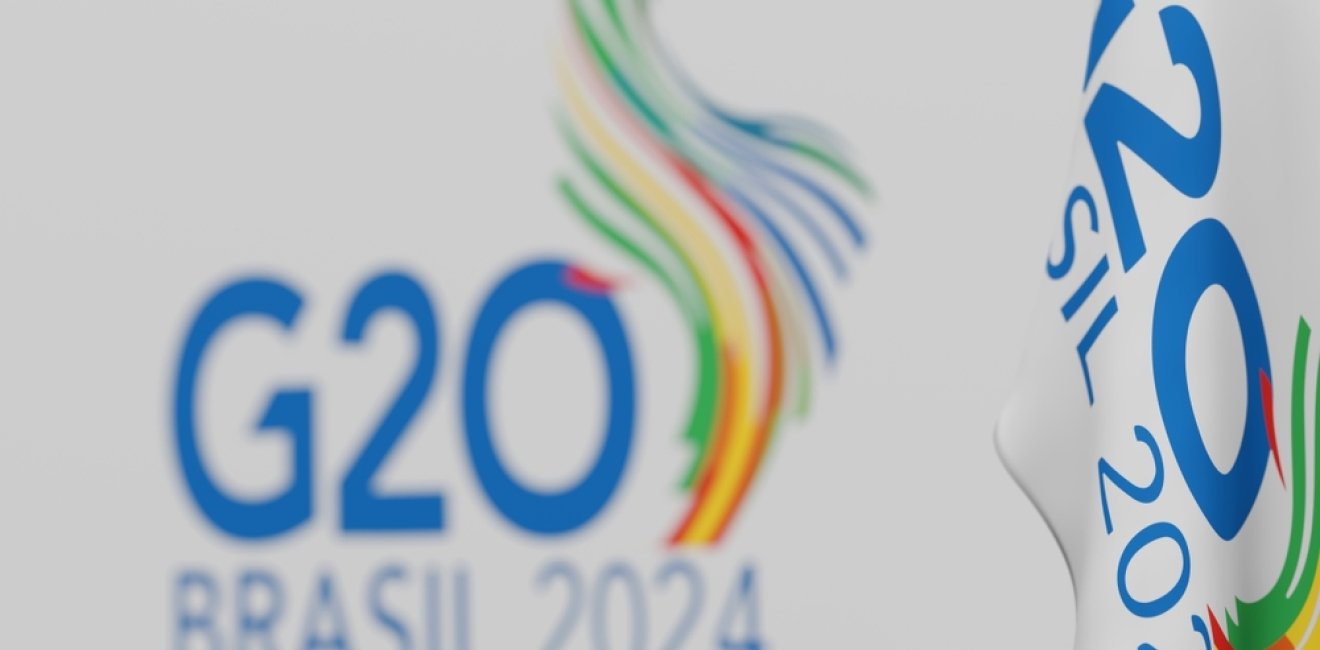Brazil's Proposal to Tax the Super-rich
As part of its G20 presidency, Brazil wants to bring forth the discussion of a more progressive tax system

A blog of the Brazil Institute
As part of its G20 presidency, Brazil wants to bring forth the discussion of a more progressive tax system

Brazil last week disclosed a study by French economist Gabriel Zucman proposing an international standard to tax billionaires. This study, commissioned by the Brazilian government as part of its G20 presidency, aligns with Brazil's earlier indications of seeking to tax the super-rich.
In February, Finance Minister Fernando Haddad told his counterparts at a G20 meeting in São Paulo that “we still need to make the world’s billionaires pay their fair share in taxes.”
Last year, the European Union-funded Tax Observatory called for a 2 percent levy on the wealth of the world’s approximately 2,500 billionaires, projecting it would raise at least USD 214 billion. This tax would be collected by their respective residence countries. Mr. Zucman was one of the authors of that report.
The proposal commissioned by the Brazilian government is similar, suggesting that individuals with over USD 1 billion in wealth pay an annual minimum tax of 2 percent of that wealth. For Mr. Zucman, this approach is crucial because “for ultra-high-net-worth individuals, wealth is harder to manipulate than income.” He has also proposed new instruments to implement this idea.
In updated calculations, the tax on billionaires would raise USD 200-250 billion annually from about 3,000 taxpayers around the world. Extending the tax to centimillionaires would add another USD 100-140 billion.
Mr. Zucman proposes a coordinated minimum standard that would “not require a multilateral treaty and could be flexibly implemented by participating countries through a variety of domestic instruments,” including presumptive income taxes, income taxes on a broad notion of income, or wealth taxes.
He compares this proposal to the 2021 OECD Global Minimum Tax standard on multinational companies with revenues above EUR 750 million (USD 802 million), where at least 139 countries agreed to a minimum effective rate of 15 percent on corporate profits. The policy aims to end or reduce the benefit of shielding profits in tax havens, but each country must implement it locally. For example, despite U.S. President Joe Biden's push, Congress has not yet changed U.S. tax law to conform to the 15 percent rate.
Nevertheless, Mr. Zucman argues, “while these policies have limitations, they also show that new forms of international cooperation, long deemed utopian, can emerge in a relatively short period of time.”
According to Mr. Zucman’s blueprint, only billionaires who currently pay less than 2 percent of their wealth in taxes would need to pay more. As such, the “minimum tax proposed here would merely offset the failure of the income tax, when it fails.”
The idea would lead to a presumptive income tax, which assumes that a billionaire who reports little taxable income must be earning economic income not captured by the tax code. Under this proposal, billionaires would also calculate the amount of tax normally owed, and then pay the greater of the two amounts: between the regular calculation and the presumed calculation.
Mr. Zucman notes that people “reporting large amounts of taxable income would typically not be affected by the presumptive income tax.”
Another option to enact the same policy would be a wealth tax, which would require the government to include all forms of wealth in the calculation. This can be challenging as the super-rich often own assets with no immediately observable market value.
A third alternative is a tax on income including unrealized capital gains, subjecting the super-rich to a minimum individual tax rate. For instance, earlier this year, the Biden administration proposed a new 25 percent minimum income tax on taxpayers with wealth over USD 100 million to avoid loopholes.
Mr. Zucman believes that allowing flexibility in choosing the instrument is “likely to maximize the number of countries” joining the standard. He adds that “involvement of the G20 and other international forums and organizations will be essential.”
Felipe Antunes, general coordinator of international financial affairs at Brazil’s Finance Ministry, expressed “great interest” in the proposal. "A top concern for Brazil’s G20 presidency is ensuring the super-rich pay a fair amount of taxes,” he said, while acknowledging that discussions are in the early stages and need time for implementation.
Challenges to the proposal include accurately calculating individuals' wealth; overcoming international financial opacity by improving transaction transparency, and dealing with the fact that some countries may enact the standard without others following suit.
Nationally, Finance Minister Haddad and the Luiz Inácio Lula da Silva administration have succeeded in enacting policies to tax Brazil's super-rich.
In late 2023, Lula ratified a bill to tax offshore investments and investment funds used by the super-rich. In February, the government limited exclusive pension funds for super-rich families to BRL 5 million (USD 1 million) in individual balances to prevent tax avoidance from offshore investments migrating to such pension funds.
This text is part of G20 Dialogues, a project of the Brazil Institute at the Woodrow Wilson Center and The Brazilian Report. Through live broadcasts, articles, and events, we will analyze Brazil’s challenges and actions at the helm of the G20.

Like the content? Subscribe to the Brazilian Report using the discount code BRG20 to get 20% off any annual plan.

The Brazil Institute—the only country-specific policy institution focused on Brazil in Washington—aims to deepen understanding of Brazil’s complex landscape and strengthen relations between Brazilian and US institutions across all sectors. Read more


